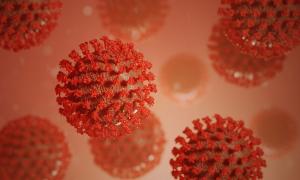Key to plitidepsin's success, preventing SARS-CoV-2 replication inside cells

IrsiCaixa researchers have shown that plitidepsin prevents one of the first steps in the creation of new viruses in infected cells, specifically the formation of cellular compartments or vesicles where the genetic material of SARS-CoV-2 replicates
As well as vaccines, finding effective treatments for SARS-CoV-2 is a priority to prevent the progression of COVID-19. Plitidepsin, marketed as Aplidin®, has been one of the most effective drugs at blocking SARS-CoV-2 replication in laboratory experiments. Now, researchers at the IrsiCaixa AIDS Research Institute, a centre jointly sponsored by the "la Caixa" Foundation and the Catalan Ministry of Health, the National Biotechnology Centre (CNB-CSIC), the Animal Health Research Centre (IRTA-CReSA) and PharmaMar have discovered at which point in the SARS-CoV-2 replication process plitidepsin is able to interfere with the cells and thus prevent the progression of the viral infection. The drug would block a host cell molecule that is necessary for SARS-CoV-2 to form vesicles where new viruses are made. Unlike the vast majority of antivirals, plitidepsin - a drug currently in a phase III clinical trial - acts on the host cell and not on the virus, blocking essential processes shared among the different variants of SARS-CoV-2. This makes it a potential tool to combat not only current SARS-CoV-2, but also future variants that may emerge.
The study, published in Antiviral Research journal, was presented yesterday at the Conference on Retroviruses and Opportunistic Infections (CROI), one of the most important conferences in the field of viral diseases. "When we launched this study to analyse the antiviral activity of plitidepsin in the cell, we did not expect to discover that its target was at such an early stage of SARS-CoV-2 replication", explains Cristina Risco, CNB-CSIC researcher and co-leader of the study.
Preventing SARS-CoV-2 replication from the outset
The researchers who carried out the study have proved, in cell cultures in the laboratory, that low amounts of plitidepsin are capable of inhibiting, 48 hours after infection with SARS-CoV-2, the virus's ability to replicate. "Using electron microscopy techniques, we have been able to see how, in the presence of the drug, the double-membrane vesicles, which are the cellular compartments in which the genetic material of SARS-CoV-2 replicates, do not form. We think that this is because the non-structural proteins of the virus necessary for the creation of these vesicles are not formed as a result of the action of the drug", says Martin Sachse, researcher at the CNB-CSIC and the Instituto de Salud Carlos III and first author of the study. The team that carried out the study also verified the non-formation of new viral particles with immunostaining techniques. "We can confirm that plitidepsin acts at a very early point in the viral infection cycle, specifically at the moment when the genetic material of SARS-CoV-2 sends orders for the production of viral proteins that will form the compartments where the viruses replicate their genetic material and direct the synthesis of new viruses", adds Nuria Izquierdo-Useros, principal investigator at IrsiCaixa and co-leader of the study. Moreover, the researchers welcome the fact that a low concentration of plitidepsin achieves a potent antiviral effect.
A treatment to combat different variants
Viruses generally have few therapeutic targets at which drugs can be directed. Moreover, due to their ability to mutate, these targets may no longer be effective. Therefore, finding highly conserved points in the viral replication cycle can be very useful when designing broad-spectrum antiviral drugs. "One of the advantages of plitidepsin over other antivirals is that, instead of acting directly on the virus, it blocks a cell-derived molecule that is essential for SARS-CoV-2 replication. This makes it a great candidate for combating other SARS-CoV-2 variants that may emerge", conclude Risco and Izquierdo-Useros.